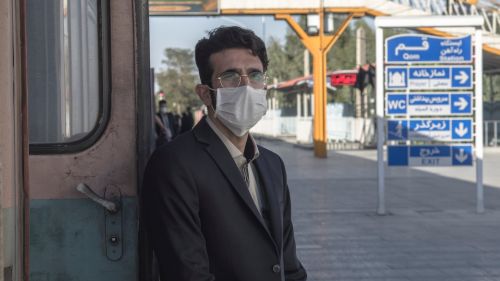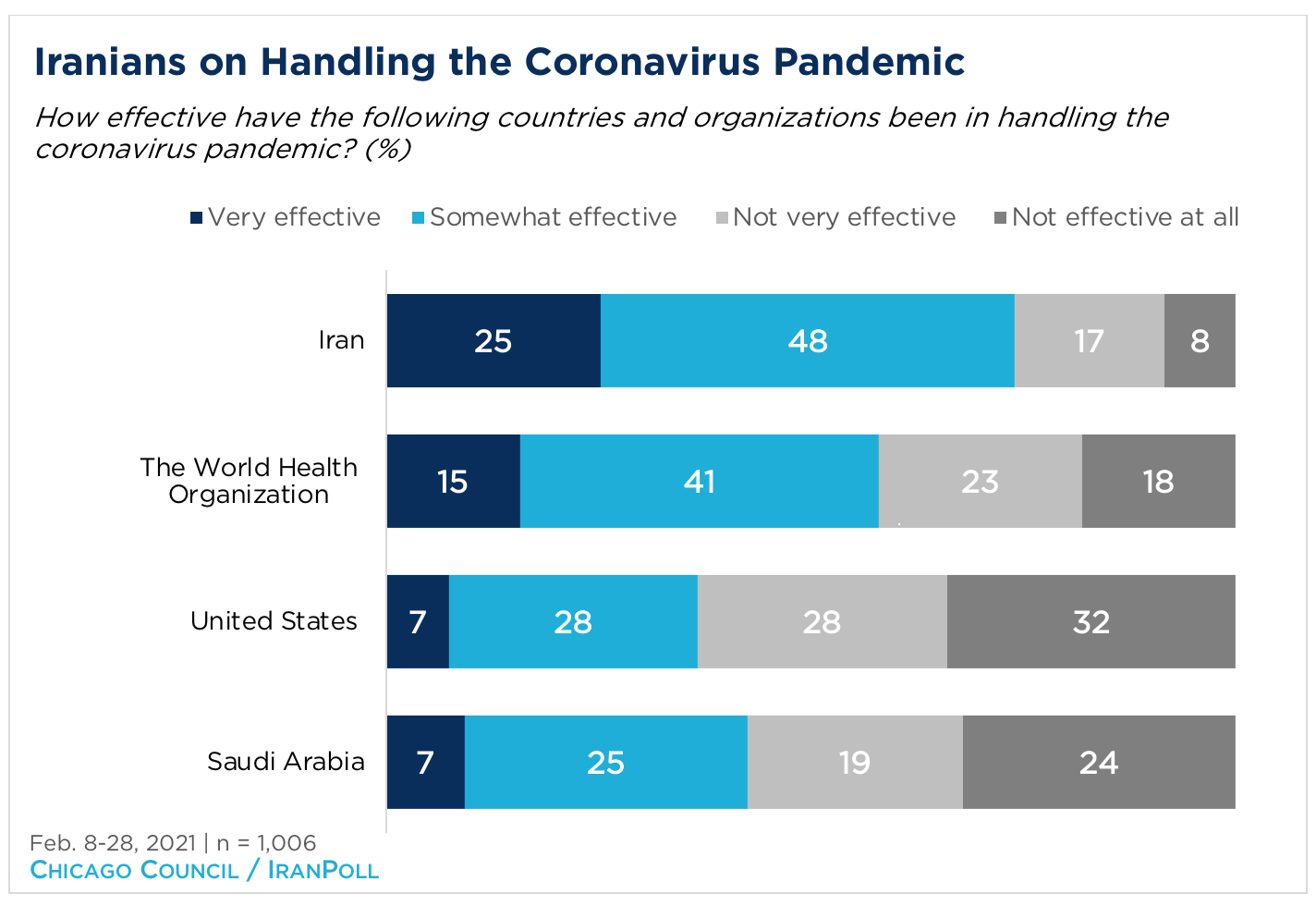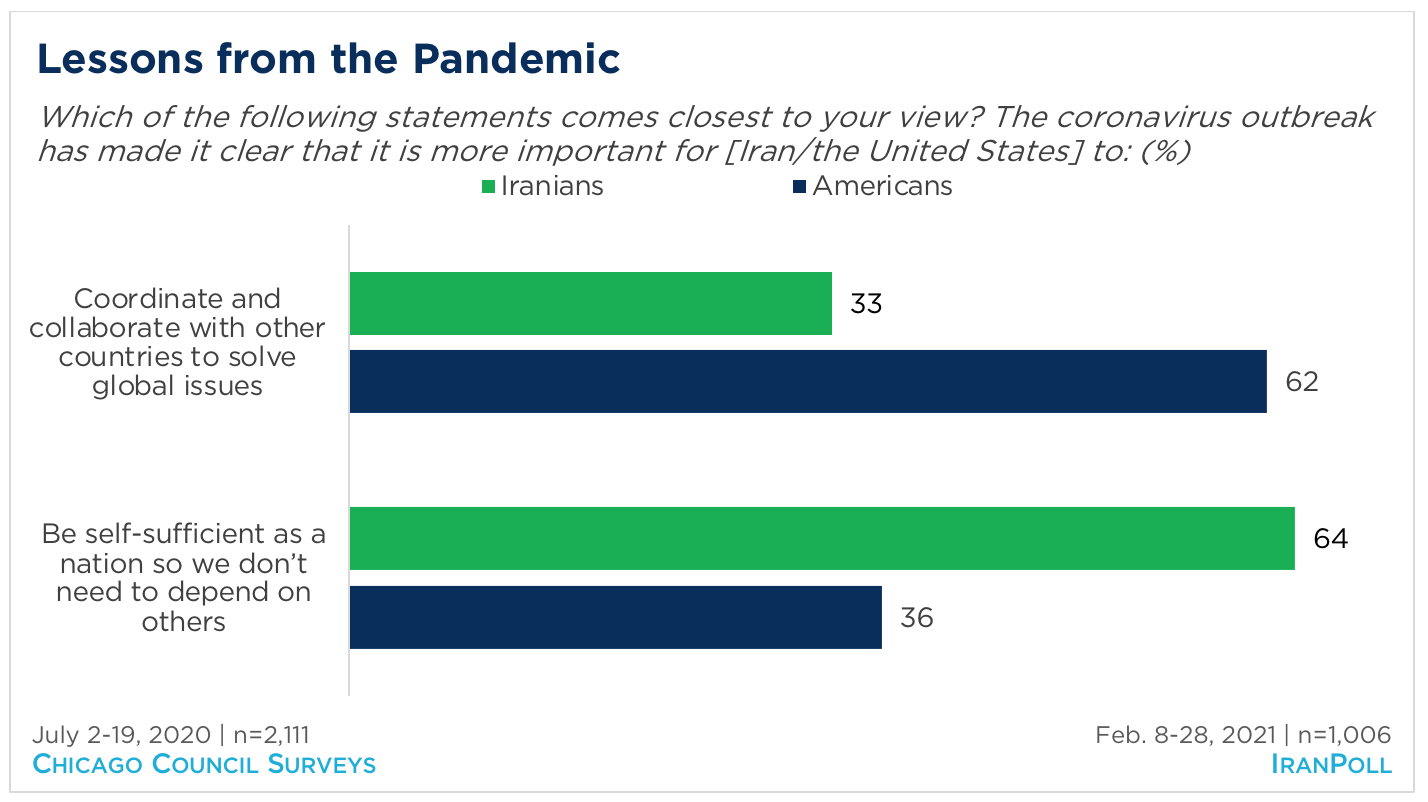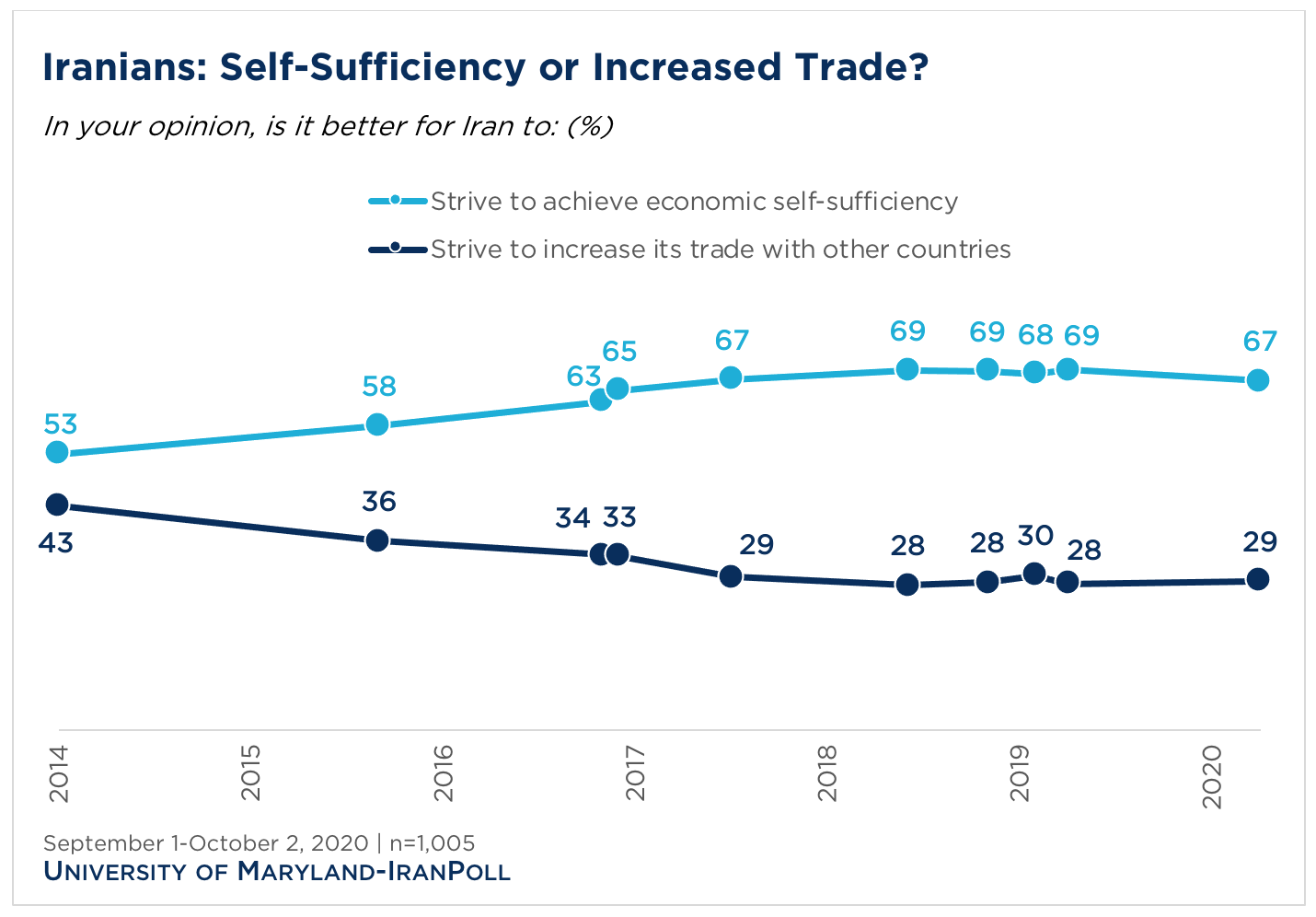Despite Early Outbreak and Heavy Toll, Iranians are Proud of Iran's COVID-19 Response

Council and IranPoll surveys find that Iranians and Americans think the United States handled COVID-19 poorly, while Iranians are proud of their country’s response.
The United States and Iran have both spent the last year struggling to contain the COVID-19 pandemic. Over 61,000 Iranians and 540,000 Americans have died from the disease, with millions more infected. In part, this gap in deaths simply reflects the greater size of the United States. But the US has also suffered a greater share of deaths from the pandemic, with 169 deaths per 100,000 people, compared to 37 for Iran, though more of Iran’s COVID-19 patients have died (3.3%, vs. 1.8% in the United States).
Recent surveys by the Chicago Council on Global Affairs and IranPoll, conducted in the United States and in Iran, find that both publics think the United States handled the pandemic poorly. But Iranians, despite the toll the pandemic has taken, are proud of their country’s response.
Half of Iranians Know Someone who has Died from COVID-19
Given the scale of the pandemic, most Iranians have a personal connection to the disease. The Chicago Council-Iran Poll survey finds that eight in ten Iranians (79%) say they know someone among who has gotten sick from the coronavirus, and half (49%) know someone who has died from it. A quarter of Iranians (25%) say that someone in their household has lost their job as a result of the pandemic. Iranians seem prepared to accept that risk: a majority continue to believe that the government should do what it can to prevent the spread of the coronavirus, even if that would damage Iran’s economy (59%).
Iranians Rate Iran’s COVID-19 Response above US, Saudi Arabia, WHO
Despite the serious toll the virus has taken on the nation, most Iranians (73%) say their country has handled the pandemic effectively (73% in the joint Chicago Council-IranPoll February survey). In fact, more Iranians say that Iran was effective in dealing with the pandemic than say so for any other country or organization asked about. That includes the United States. A majority of Iranians (63%) say that the US has been not very or not at all effective in its handling of the coronavirus pandemic - and a similar proportion of Americans agree (60%) Iranians are also negative on Saudi Arabia’s coronavirus response, with a plurality (44%) saying their Saudi neighbor’s response was not very or not at all effective. However, Iranians do see the World Health Organization (WHO) as having handled things well (56% effective).
Indeed, an October 2020 University of Maryland/IranPoll survey found that Iranians thought their country had handled the pandemic as effectively (40%) or more effectively (30%) than “similar countries,” though one in four (25%) said Iran’s response had been less effective than similar countries.

Economic Concerns Stem from Domestic Issues, not Pandemic
While the pandemic has clearly had negative impacts on Iran’s economy, Iranians don’t see the pandemic as the most important factor in determining Iran’s poor economic performance. In a February UMD/IranPoll survey, only two in ten Iranians (20%) say the coronavirus pandemic has had the most significant negative impact on Iran’s economy. Instead, half (52%) say that domestic economic mismanagement and corruption has had the greatest negative impact on the Iranian economy. An additional one in four (25%) point to foreign sanctions and pressures. Nevertheless, six in ten prefer that the Iranian government prioritize preventing the spread of the coronavirus over encouraging economic activity, even at the risk of a greater outbreak(59%) versus three in ten who prefer the government prioritize economic activity over preventing the spread (31%).
Drawing Different Lessons from the Pandemic
The joint Chicago Council-Iran Poll found that, in the wake of the pandemic, Americans and Iranians may have drawn different lessons from the outbreak. In the 2020 Chicago Council Survey, conducted in the summer of 2020, a majority of Americans said that the pandemic has made it clear that it is more important for the United States to coordinate and collaborate with other countries to solve global issues (62%), rather than seeking to be self-sufficient and free of dependency on others (36%). Iranians, by contrast, drew the opposite lesson, saying that Iran should seek to be self-sufficient (64%).

However, the Iranian preference for self-sufficiency is in fact a longstanding one, and may not be due simply to the experience of the coronavirus pandemic. Surveys conducted by UMD/IranPoll find that Iranians have consistently favored Iran seeking economic self-sufficiency rather than increased international trade.


